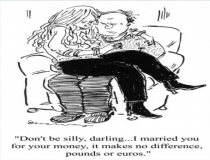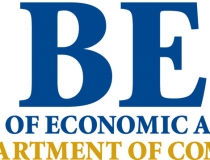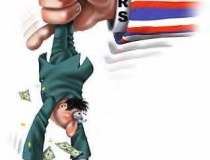The Emerging Tax Meme
One thing I enjoy, is connecting dots or looking for patterns. To this end, I believe that there has been a shift in the way in which tax is being discussed in the main stream. I have 5 examples to illustrate my point.
Firstly, there is the case of Jack Warner. It is alleged that the IRS and Homeland Security are looking into the former FIFA Executive’s activities. One of his sons is allegedly being detained in Florida as his income, as declared on their tax return (US$72 000 per annum), does not sufficiently explain how they could afford certain South Florida real estate purchases (4 condos costing US$400 000 paid for in cash). Further it has been alleged that Warner’s son is cooperating with the investigating authorities as a sealed indictment has been obtained against their father.
Secondly, there is the case of Jerome Cahuzac, who resigned as Budget Minister and last month bowed to pressure and also resigned from Parliament in France. The disgraced tax czar and cardiologist repeatedly lied about undeclared off shore accounts. The eventual confession by the man who led France’s fight against tax evasion, that he secretly defrauded the taxman and was “caught in a spiral of lies” is a huge embarrassment for President Hollande, who promised that his government would be beyond reproach after the corruption allegations that dogged previous French administrations.
Thirdly, there is the case of American multinationals here in the UK. Last December, a committee of MPs here in the UK accused Amazon, Google and Starbucks of an “immoral” use of secretive jurisdictions, royalties and complex company structures to avoid paying tax on British profits. The Commons Public Accounts Committee also criticized HM Revenue & Customs for being “way too lenient” in negotiations with corporations which pay little or no corporation tax. It called on the government to draw up laws to close loopholes and name and shame companies that fail to pay their fair share.
Fourthly, there is the case of FATCA. The Foreign Account Tax Compliance Act (FATCA) is part of the effort by the US government to prevent money laundering, and reduce tax evasion. It is not a new tax but it requires both non US financial institutions and American taxpayers to disclose details of overseas accounts over a certain threshold. Recently a subgroup calling itself the G5 (the UK, France, Germany, Italy, Spain) signed an agreement on automatic banking information exchange to identify individuals and companies who may be avoiding tax using overseas accounts. A similar deal is being considered by the wider G7.
So those 4 cases which were much publicized in their respective regions have a similar theme – the powers that be are clamping down on the ‘bad guys’ who seek to avoid or evade paying their fair share. That brings me to the fifth case.
The Market Fairness Act otherwise known as the Internet Sales Tax is a Bill that was passed by the US Senate earlier this month and is now before the House. It is not a new tax but essentially seeks to enforce state and local (sales and use) taxes on online businesses that generate more than $1 million in revenue. At the moment, each state in the US may impose a sales or use tax on products or services sold in that state. Some states impose one while others do not. To make it more complex, within each state, counties and cities may have different sales tax rates and scope, resulting in many different rates based on the location of the point of sale. Generally, the states allow (or require) the seller to itemize and collect the tax from their customers at the time of purchase. Most jurisdictions hold sellers responsible for the tax even when it is not collected at the time of purchase.
The problem (from a tax collectors point of view) is that a Supreme Court ruling allows remote sellers (such as EBay or Amazon) to only collect these local taxes only in states where they have a physical presence. Brick and mortar retailers (like Walmart) complain that this gives the virtual retailers a serious advantage. The Market Fairness Act will eliminate this advantage.
So that’s the surface. Some observers have dug a bit deeper and predicted two consequences of this new tax meme. Firstly, like with FATCA, tax authorities will suddenly have access to taxpayer personal details and online shopping habits. Some conspiracy theorists are already saying that this may not exactly be an unintended consequence. Secondly, this is yet another blow to the offshore business model as it essentially weakens the economics that favors off shore structures. Again, this is perhaps not an unintended consequence.
House Speaker John Boehner has said that he will not support the bill because compliance would be a “mess”. Somehow I think the bigger forces at work may lead to him changing his mind.
Read more on DerrenJoseph.blogspot.com
Recent Posts




